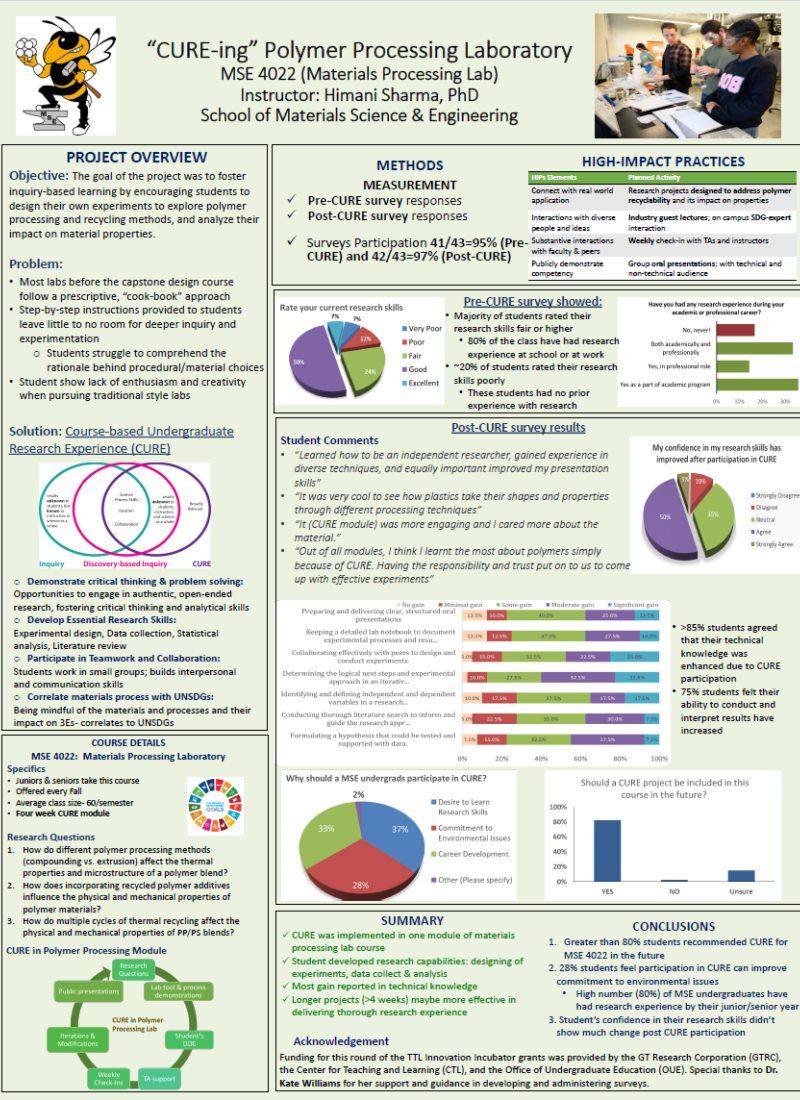The goal of the project was to promote inquiry-based learning by empowering students to design and carry out their own experiments, moving away from a prescriptive, step-by-step approach and toward independent problem-solving and critical thinking.
Student groups were given a research question that addressed a specific aspect of polymer processing. Each group first learned different processing and material characterization techniques available to them before designing their experiments and carrying out the research. Providing more agency to the students encouraged them to think critically, do appropriate research, and learn from experimental failures.
The impact of the CURE was assessed using pre/post surveys. Students were asked to evaluate their confidence in research skills and understanding of the module's technical content both before and after participating in the CURE module.
The results indicated that students perceived a significant improvement in their ability to conduct independent research as a result of their participation in the CURE. Additionally, when asked if the CURE project should continue to be part of the course, an overwhelming majority (over 80%) responded affirmatively.
The following student comments from post-survey reflections support the value of integrating authentic research experiences into undergraduate lab courses, even in the context of short, modular implementation:
1. “Learned how to be an independent researcher, gained experience in diverse techniques and -- equally important -- improved my presentation skills”
2. “It was very cool to see how plastics take their shapes and properties through different processing techniques”
3. “It (CURE module) was more engaging and I cared more about the material.”
4. “Out of all modules, I think I learned the most about polymers simply because of CURE. Having the responsibility and trust put on to us to come up with effective experiments”
2025 GTREET (Georgia Tech Retreat Exploring Effective Teaching)
2025 Celebrating Teaching Day
2025 USG Teaching and Learning Conference


I intentionally integrate elements in my teaching that prompt transformative learning: hands-on active engagement in class, field-related cutting edge techniques and methodologies, industry members who represent the manufacturing perspective, and challenging students to apply their new knowledge.